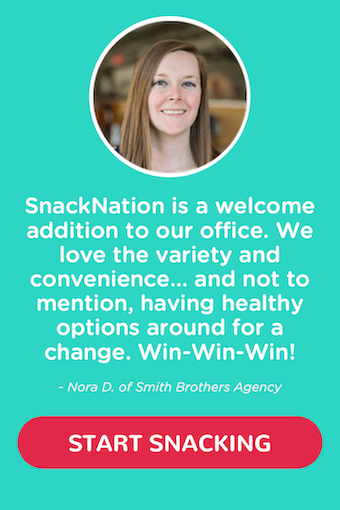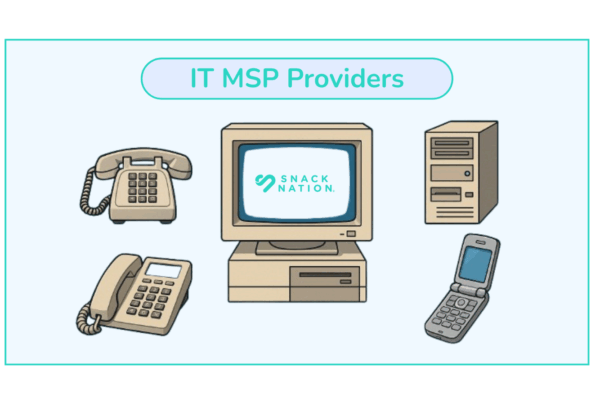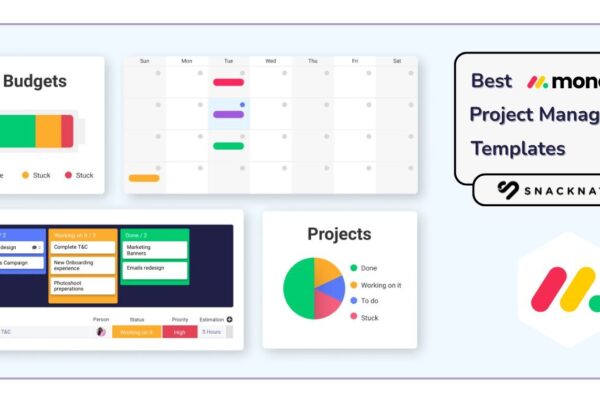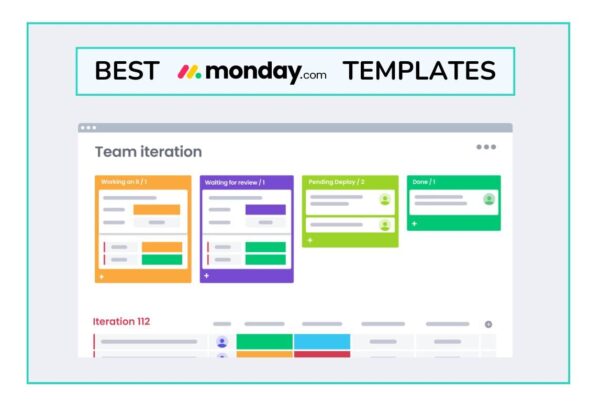
If you’re on the fence or generally ambiguous about using culture interview questions to establish a culture fit throughout the hiring process, you’re not alone. The construct hasn’t really lived up to the promise of delivering dreamy employee-organization matches made in heaven.
What typically happens is that instead of hiring based on objectivity and measurability, candidates get hired based on how “similar” they are to the existing employee pool. Hiring managers aren’t entirely to blame – the term culture fit can be an amorphous concept to execute in practice. And what constitutes culture fit can vary from interviewer to interviewer.
In that sense, hiring for cultural fit may (and does) frequently perpetuate exclusionary bias to the detriment of your organization’s health and growth.
Ex-Chief of Talent for Netflix, Patty McCord, in an article for the BBC, says, “If you go out to hire people who are just like you, it’s unlikely you’re going to solve a problem that people just like you haven’t already solved.“
How do you flip the switch so you’re asking culture fit questions that are relevant, insightful, diversity-friendly, and inclusive? There’s an art to attracting talented culture adds.
Pro-Tip from The Assist: When interviewing for a culture add, take both sides of the equation into account. You’re evaluating the candidate’s ability to add to your organizational culture. But you’re also allowing them space to see if your organization checks the right boxes for their dream job, too, in terms of values and professional aspirations.
Try these FREE email newsletters to gain insights and resources for being a better professional:
| The Assist | 💼 Become a better professional in under 5 minutes | Subscribe Here |
| FounderIV | ⚡Achieve breakout founder performance with this free weekly email | Subscribe Here |
| Human Crapital | 🤭 Helping you avoid embarrassing, uncomfortable, and common HR mistakes | Subscribe Here |
Page Contents (Click To Jump)
What is Company Culture?
Company culture is the total of an organization’s values, behaviors, attitudes, goals, and practices shared and implemented across the board. Company culture can make or break strategic growth.
If employees feel that the organizational culture was misrepresented, or worse, not aligned with their personal beliefs, it can cause morale to sink to a new low. Companies, on the other hand, may fail to fully realize the potential of their human capital investment.
When both the organizations and the employees embrace and contribute to a positive work environment and culture, you can expect these benefits and more:
- The ability to attract the best new hires as employees also look for best-fit companies to work for.
- An environment that fosters positive engagement, professional excellence, and work-life balance.
- The ability to achieve business goals through optimizing your company culture not just in terms of numerical growth but also employee satisfaction.
Get company culture wrong, and you’re looking at a listless, demotivated workforce that will simply up and leave at the first opportunity.
In April 2022, 30% of respondents in a FlexJobs survey said they were considering quitting, while 25% had already quit their job during the previous six months. 62% of respondents considered a toxic work culture as their number one reason for quitting.
Why Prepare Culture Interview Questions?

Culture interview questions are a must-have for any hiring manager looking for a solid arsenal of recruitment strategies. An astute understanding of different thinking styles and cultural sensitivity are your best tools for creating an inclusive hiring experience. You may also find the following resources and tool guides helpful:
- Best interview questions hiring managers should ask
- Best video interview questions to ask candidates
- Interview tips to get hiring right the first time
- Bulletproof video interviewing guide and video interview questions
- Best recruitment software tools to help you attract the best talent
- Video interview software you can’t afford to miss out on
If you’re a candidate looking for a job, you want to revise and rehearse culture interview questions as part of your general interview preparation. Given how important cultural assimilation is to the long-term success of a company, it’s critical you have:
- A sound understanding of your personal values, professional attitudes and behaviors.
- A realistic idea of what the ideal company culture to grow and thrive in looks like.
- The ability to persuade interviewers and key stakeholders to your value as a culture add.
Think about how your diverse experiences and unique perspectives could benefit the organization.
Regardless of whether you’re a hiring manager or a candidate, refer to our list of Q&As coming up later in this article for ideas on the types of questions you should be asking and examples of well-thought-out responses to guarantee a good cultural fit.
Tips to Keep in Mind When Asking Culture Interview Questions
1. Clearly define your organization’s culture
Start with fleshing out your company’s reason for being (the goal statement), mission statement, corporate vision, and values. What type of cultural environment would best serve these goals, values, and aspirations? Include your employees in the culture development process.
2. Align questions with cultural values
Having a clearly defined company culture makes it easier to align your questions with what you want to see in the ideal candidate. For example, if a collaborative personality is the best value-add for the role, ask your candidate whether they work best individually or with a team.
3. Be consistent
If you’re not walking the talk consistently, it could also lead to a decline in team morale because of a lack of accountability. Candidates are likely to pick up on inconsistencies if they’ve researched your organization ahead of time and your presentation doesn’t match up.
4. Be aware of your biases
Unconscious bias is all too real, which is why you should opt for a combination of different strategies to avoid bias. Think about removing identification information in the form of gender, race, or age, for example, from application forms. Use standardized questions and a rubric for assessment. Consider multiple interviewers from diverse backgrounds.
5. Focus on behavior and examples
Using open-ended questions that focus on behavior and examples can give you a good sense of how a candidate approaches his professional environment and deliverables.
For example, rather than ask, “define company culture,” ask questions along the lines of “provide specific examples of diversity and inclusion promotion activities,” or “describe an ideal company culture scenario where you feel you could deliver your best.” Don’t be afraid to ask follow-up questions for additional clarity.
6. Encourage self-reflection
Spend some time after each interview in a quiet environment to self-reflect. What could this candidate potentially contribute to your organization that other candidates can’t? Could this candidate challenge (in a good way!) an existing company culture that’s too homogenous and therefore not innovative enough.
Whatever you do, don’t rely on your “gut hunch,” when hiring for a culture add, as it could potentially open you up to unconscious bias.
7. Use a mix of question types
Aside from open-ended questioning, also look at behavioral interviewing techniques, “what would you do if?” types of questions, and standardized testing tools. These can give you 360-degree insights into your candidate, providing for a more nuanced and well-calibrated assessment.
8. Listen actively
Use active listening best practices like paying attention, acknowledgment, eye contact, deferring judgment, and appropriate responses during your interviews. They encourage the candidate to open up, feel more at ease, and put their best foot forward.
9. Seek diverse perspectives
Look at diversifying your talent pool so you get a range of perspectives. Diversification provides value to the organization in terms of increased creativity, innovation, and problem-solving capability.
10. Consider cultural add rather than just fit
The idea of “culture fit” can promote exclusionary hiring practices despite your best efforts. Look at culture adds instead, where diverse perspectives and insights could bring about new ways of thinking and engagement at the workplace.
15 Common Culture Interview Questions
During the job interview, feel free to adapt and modify this set of questions and answers based on your unique requirements and background as an interviewer or candidate, respectively.
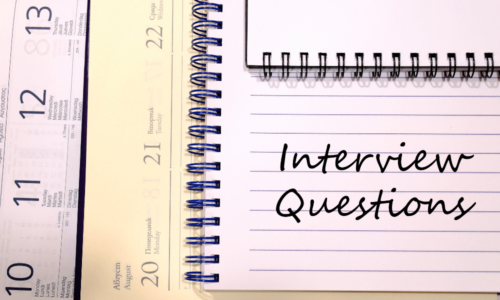
1. Do you work better remotely or in person? Why?
Why this is a good culture fit interview question to ask: You’re attempting to understand whether your candidate works best in a collaborative workplace culture where there is constant face-to-face interaction and feedback loops.
Alternatively, you may be planning to install a remote work setup or have a version of it already in place. You’re determining whether the candidate is self-regulated enough and has a disciplined work ethic to get things done without the team dynamic.
Sample response: I enjoy working with other people and thrive on the energy of mutual exchange of ideas and sharing of best practices. At the same time, I am disciplined enough to work on my own or in a remote environment when needed. I can adapt to the requirements of the situation and consistently deliver my best.
2. What work environment makes you feel the most alive and productive?
Why this is a good culture interview question to ask: It’s an open-ended question that leaves the floor open for the candidate to describe their optimal working environment. The candidate also has more room to expand on what they enjoy the most and what motivates them. The response can tell you a lot about a candidate’s mindset, belief systems, and the way they interact with others as a part of a team.
Sample response: I work best in a collaborative work environment which ideally has an open-plan workspace. No walls or closed cubicles. Open floor plans make it easy to communicate with other team members. The constant back-and-forth ideas and input sharing can be highly energizing in this type of work. It also encourages relationship-building, which I believe is essential for quality output.
3. If your team mostly worked together in the office, what would you do to make remote members feel included?
Why this is a good culture interview question to ask: Aside from determining the leadership style, you’re looking for smart, practical, and workable ideas for engaging remote workers. If the answers are too “big picture,” ask to elaborate on processes in depth. Have the candidate describe how they would execute their ideas and measure results.
Sample response: Select and elaborate on 2 to 3 ideas from our in-depth resource for building a strong remote work culture in virtual teams OR our guide to creative activities for culture-building. Other ideas to consider:
- Having remote workers perform as team leads on projects
- Implementing a buddy or mentor system for remote workers
- Add gamification to the mix, whether it’s for project milestones or training completion
4. Can you describe a time when you had to adapt to a new work environment? How did you approach it?
Why this is a good culture interview question to ask: You’re identifying whether a potential candidate has the ability to adapt to the unknown and how they would approach it. Can they think on their feet? How well can they navigate ambiguity? Can they embrace change and run with it?
Sample response: Unless you’re open to embracing the unknown, you’ll find it challenging to expand on your potential. Frequent recessions threw up several big changes for me as a Sales Manager in my current role. I had to pivot and find new ways to reach out and build relationships with existing and potential clients.
We talked to our existing clientele and assured them that it was business as normal and provided a few different ways they could engage with us. I went out of my way to ensure they felt top-of-mind through frequent outreaches. For new clients, we looked at remote methods of connecting and sales, including video calls and virtual demonstrations.
Far from seeing a decline, we actually saw an upswing in our performance to the tune of X% [insert a percentage figure] over the next [insert timeframe, say quarter, year, etc.]
5. How do you define a positive work culture, and what role do you play in contributing to it?
Why this is a good culture interview question to ask: This is one of the best questions you could use to determine a good culture add. You’re probing the candidate’s understanding of positive work culture and how they can contribute to bringing the concept to fruition.
Sample response: I see a positive work culture as one that encourages open communication, trust, and transparency. People must be considered the biggest asset and routinely motivated to put their best forward through consistent engagement, appreciation, and acknowledgment.
The organization has a solid sense of purpose and core values that are reflected in everything they do and say. Positive work culture is critical to creating an environment that’s innovative and productive, reflecting benefits to the bottom line in more ways than one.
I see my role as fundamentally walking the talk and showing up consistently doing just that. Everyone has a responsibility to build a positive work culture, but the ethos gets ingrained and assimilated faster when the senior leaders are vested in leading change.
6. Tell me about a time when you had to resolve a conflict with a coworker or teammate. How did you handle it?
Why this is a good culture interview question to ask: Aside from the ability to manage conflicts, you’re also looking for how your candidate works with other team members and whether they’re collaborative, receptive, and genuinely vested in creating win-win outcomes.
Sample response: I find that conflicts typically relate to a mismatch in terms of communication or expectations. I had a specific situation where I felt that a junior colleague was starting to look resentful. In such situations, I prefer a private one-on-one in a setting outside of the work environment.
I took the colleague to the coffee shop next door and, over snacks and beverages, asked questions about how they were doing in a non-confrontational manner. The colleague was frustrated because they had to deliver tasks with inadequate training. I asked the colleague to shadow me while I worked on a few of the tasks myself.
As a leader, you want to put yourselves in their shoes and reach a resolution that works for all sides. You also want to establish a culture of trust and open communication. The team member knew, post the fact, they could reach out to me for ongoing support and teamwork.
7. What values do you believe are important for a team or organization to succeed?
Why this is a good culture interview question to ask: You’re getting inside the head of your candidate to understand the values they rate the highest. You also want to assess whether these values are compatible with the ones your organization espouses. Additionally, look for more values that could potentially complement them.
Sample response: I would rate integrity, respect, trust, innovation, and teamwork highly for organizational success. These are fundamental for people to work well with each other and create an environment that fosters productivity and growth.
8. Can you provide an example of a situation where you went above and beyond to help a colleague or customer?
Why this is a good culture interview question to ask: This question can help you identify just how collaborative and responsive your candidate is toward colleagues. Are they a lone-wolf? Or are they genuinely vested in building relationships with colleagues and customers?
Sample response: Refer to the answer for Q6 for a sample response you can modify for this scenario.
9. How do you handle feedback and constructive criticism?
Why this is a good culture interview question to ask: You’re identifying how well a candidate can take on constructive criticism meant to improve performance. You want to see whether the candidate is able to apply the feedback positively.
Sample response: I look at constructive feedback positively. I also appreciate the fact that someone has taken the time to analyze my performance and showcase what I could do better. I usually work with the person to develop a framework of action steps and a means to measure the improvement.
10. Describe a time when you took the initiative to improve a process or implement a positive change in your previous workplace.
Why this is a good culture interview question to ask: Use this question to probe the ability to self-start, take charge, and how candidates influence positive change.
Sample response: In my previous role, it was challenging to correlate marketing efforts with sales revenue. The insights were critical to seeing the impact of specific marketing activities and identifying bottlenecks. The teams also functioned in silos, creating a culture of mistrust and lack of transparency.
I brought the teams together under a single umbrella and also implemented a CRM to link the teams. They were able to see cause and effect, and on a big-picture level, I could see where we needed to make changes to improve the bottom line. The result was an increase in profits of 35% over two years.
11. How do you ensure inclusivity and diversity in your work relationships and interactions?
Why this is a good culture interview question to ask: You’re searching for the ability to work with people from diverse backgrounds. You’re also probing for the openness to innovation and fresh ways of thinking and how well the candidate can integrate them.
Sample response: I actively seek out diversity at work. I ensure I’m consistently building and maintaining relationships with people at various departments and across all levels from diverse backgrounds. I look for opportunities to engage in cross-functional projects. It adds a lot of value in terms of giving me new insights and encouraging creative thinking.
12. Can you tell me about a time when you faced a difficult decision that challenged your personal or professional values?
Why this is a good culture interview question to ask: This is a great question to understand a candidate’s core value system, the type of person they are. and how they would react when their value system was being challenged.
Sample response: Having to lay off employees is always difficult. I believe in keeping your best performers close. The first and only time I had to do this to five employees, it was personally and professionally very challenging.
I did one-on-one meetings with each, emphasized how the decision wasn’t a reflection of their personal ability, and stressed how much we valued them. I also offered support to help them find new opportunities. I ensured I was available to provide references whenever needed.
People are critical to an organization’s success. How you treat people is a reflection of your values as well as your company’s.
13. Can you provide an example of a time when you had to work with someone who had a different perspective or work style? How did you handle it?
Why this is a good culture interview question to ask: Use this question to find out if candidates work well in diverse environments and whether they have an inclusive attitude at the workplace. Their responses can also tell you how comfortable they are with people who work differently from them.
Sample response: I don’t see this as a concern. I gravitate towards learning from people who work differently from me. I find that if things get challenging, the best way to reach a consensus is open and honest communication. Good relationships at work translate to high-performing work culture.
14. What steps do you take to promote a positive and respectful work environment?
Why this is a good culture interview question to ask: It’s a simple question that takes the bulls by the horn. You can get to the nitty-gritty of how a candidate can contribute to the work culture.
Sample response: I would use a multi-pronged management style to ensure a positive and respectful work environment. It starts with ensuring buy-in at all levels. I would look at building trust by encouraging one-on-ones and team building and genuinely implementing employee feedback. I would encourage diversity and inclusion.
I would build cross-functional teams and remove silos so people have opportunities to collaborate and build relationships. I would add pathways for training and development. I would implement rewards schemes to encourage problem-solving, productivity, and innovation.
15. Can you share an example of a time when you demonstrated leadership qualities, either formally or informally, in a team setting?
Why this is a good culture interview question to ask: Aside from helping you assess leadership potential and management style, you’re also identifying how the candidate relates and engages with others on the team. It will help you spot red flags, if any, and also understand if the candidate can positively challenge the existing culture.
Sample response: When I was brought in as a team leader in my previous role, I was explicitly told that team morale was on the descent. I was expected to turn things around and improve the abysmal levels of productivity. I started with team meetings to understand where things were getting derailed. I understood that there was a culture of mistrust and a lack of clarity on roles and responsibilities.
My first order of business was establishing a culture of trust. I ensured that employee feedback was taken on board and ideas were implemented where they could benefit. Next, I brought HR on board to create a plan of action for clearly defining roles and responsibilities and did the necessary onboarding and training to get retention.‘
I also ensured that I was open and available for team members to address concerns and challenges they had. In three months productivity was on track. By the sixth month, productivity increased by 10%, and by the end of the year, the increase was 25%.
People Also Ask These Questions About Culture Interview Questions
Q: What strategies do you employ to identify cultural fit beyond the interview stage (e.g., reference checks, assessments, team interviews)?
- A: The formal job interview should be considered just one critical component of your culture interview questioning. Other aspects you could look at are:
- Pre-interview standardized assessments or tools
- Situational judgment questions (“how would you deal in a specific situation like this?”)
- An informal and less “official” chat at the beginning of your interview to get a sense if they are a good match
- Include more diverse team members in the assessment/interview process (team interviews?)
- Reference checks
Q: How do you ensure that interview questions accurately reflect the company’s culture and values?
- A: It’s important to have a very clear understanding of your company’s culture and values to start with. It’s also necessary that your organization, your experienced and new employees, and potential candidates are on the same page. List your company’s values, culture, and what they represent ahead of time, and develop questions that reflect these concepts. Update yourself on best recruitment practices to reduce bias in your interviewing technique.
Q: How do you handle situations where a highly qualified candidate doesn’t seem to align perfectly with our culture?
- A: Ask yourself whether your idea of alignment is based on the outdated concept of “culture fit” or the more inclusive concept of “culture add.” While this can seem reductive, the idea isn’t bringing on board another person that you hang out with a beer after work because you “like” them.
- Diversity can be an asset when the candidate’s perspective on culture challenges your own but in a good way. Diversity can bring in more innovation, creativity, and the ability to problem-solve in new and exciting ways.
Q: Are there steps you can take to ensure a positive candidate experience, even for those who may not be the best culture fit?
- A: Ensure that you use standardized testing and assessment protocols. Stay open to the idea of diversity as it can add to the bottom line through creative and non-traditional approaches. Ensure your methodologies are free of bias and bring on diverse interviewers to ensure a more inclusive experience. At the end of the day, treat everyone the same, but treat them the way you would want to be treated.
Q: How do you ensure fairness and consistency when evaluating cultural add across different departments or teams within the organization?
- A: Ensure alignment across the board so there is consistency in what constitutes your company’s values, mission, purpose, and beliefs. Meet up with team leaders to ensure the concepts are filtered all the way down to the bottom of the organizational structure. Apply the same methodology to identifying bias and eliminating it from the assessment process. Provide intensive onboarding where needed to ensure everyone’s on the same page.


